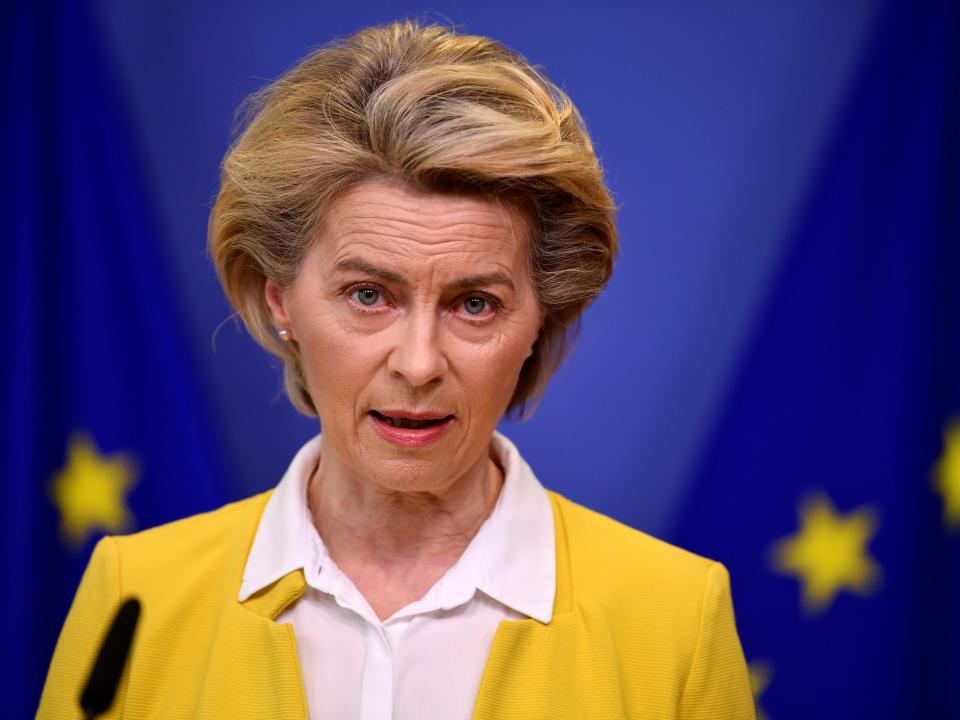EU to push for 1.8 billion vaccine doses in Pfizer deal
Watch: EU to get 50 mn Pfizer doses early as Denmark scraps AZ
The EU has announced plans for a major contract extension for Pfizer’s Covid-19 vaccine.
EU Commission chief Ursula von der Leyen said on Wednesday that the EU would start negotiations to buy 1.8 billion doses of the Pfizer/BioNTech vaccine through to 2023.
“We need to focus on the technologies that have proven their worth,” Ms von der Leyen said in an apparent jab at AstraZeneca, with whom EU leaders have previously and very publicly feuded about vaccine supply.
The AstraZeneca jab is a viral vector vaccine, similar to the Johnson & Johnson shot, while Pfizer’s and Moderna’s inoculations use mRNA technology to produce an immune response.
Both the AstraZeneca and Johnson & Johnson vaccines have faced concerns in recent weeks over very rare blood clotting incidents which may be linked to them.
On Wednesday, Denmark became the first country to announce it would stop using the AstraZeneca jab altogether due to concerns about blood clots.

Other countries, including the UK, have limited its use and recommended that it should only be used in older patients, such as those over the age of 30.
Pfizer/BioNTech has said it is planning to provide the EU with an extra 50 million doses in the second quarter of this year, on top of 200 million doses already earmarked for the bloc’s 27 member nations.
The European Commission currently has a portfolio of 2.3 billion doses from half a dozen companies and is negotiating more contracts.
“We keep all options open to be prepared for the next stages of the pandemic, for 2022 and beyond. We can, however, not comment on contractual issues,” the Commission said in a statement.
About 16 per cent of the EU’s total population have received at least one vaccine dose so far, as of 13 April, according to figures collected by Our World in Data.
Additional reporting by AP
Watch: Do coronavirus vaccines affect fertility?
Read More
Moderna vaccine given to patients in UK
Azerbaijan display of dead soldiers’ helmets sparks outrage in Armenia

 Yahoo News
Yahoo News 
